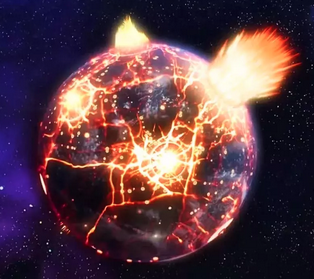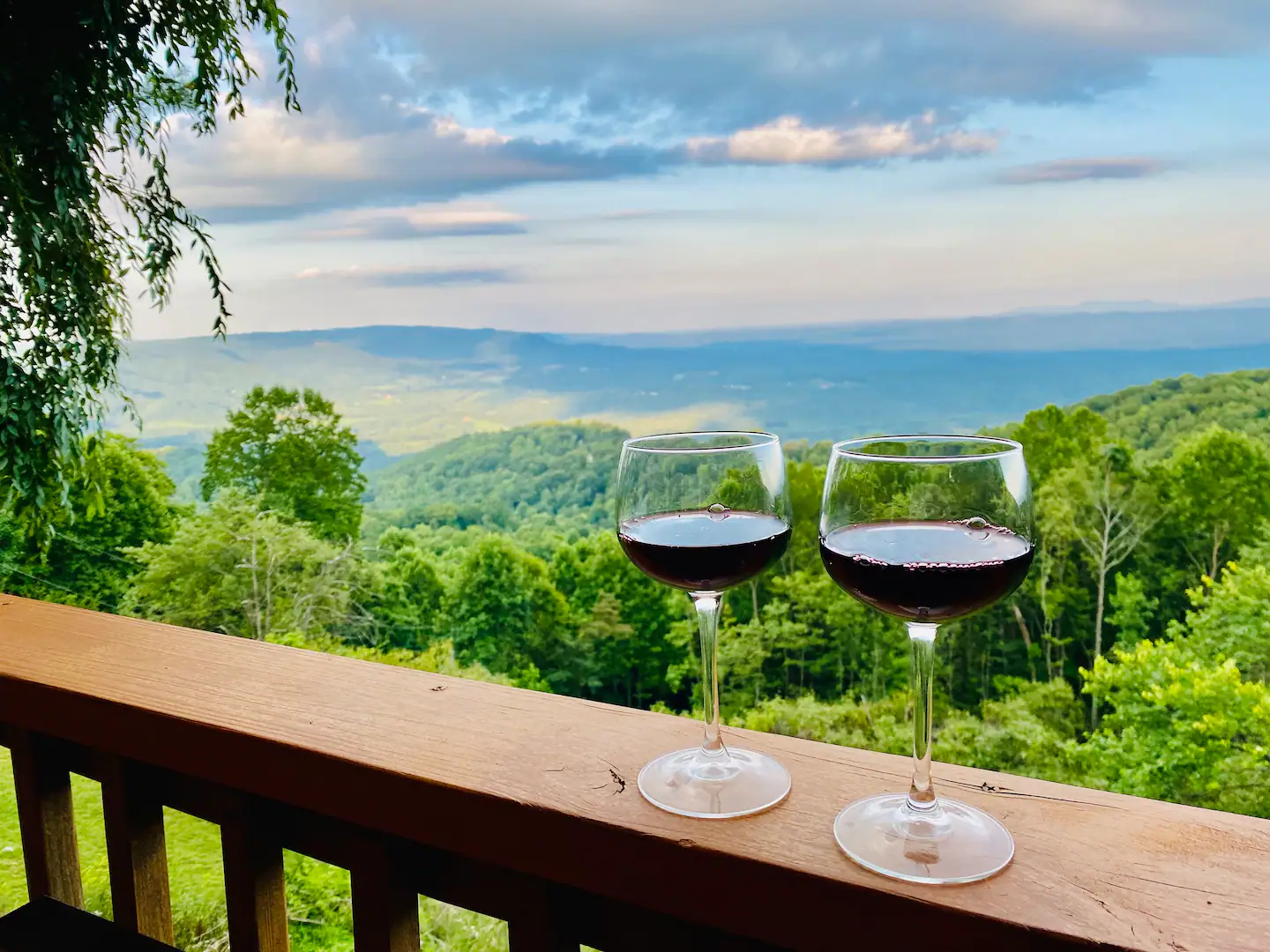- cross-posted to:
- [email protected]
- [email protected]
- [email protected]
- cross-posted to:
- [email protected]
- [email protected]
- [email protected]
About the author’s struggle to find someone among his friends to speak to about collapse. He says, "Most of all, I want someone to hug me and say, “I know. I’m scared, too.” Lots of good links in there for further reading.
Awareness of dire likelihoods and absolute realities is terrifying and depressing. My first recommendation for anyone facing such is to seek professional help - I don’t mean this as derogatory in any way but from a place filled with love. This might involve medication for some. That’s ok. Some of our brains are not great at handling stresses caused by modern human civilization, whether that’s due to a heightened fight-or-flight response, tendency towards depression, or a number of other conditions.
My second is to find a way to compartmentalize based upon one’s personal ability to impact these externalities or mitigate their effects.
Third, and probably most important, be careful with psychoactive substance use. Alcohol, cannabis, psychedelics, and others can dull things or provide a brief escape but nothing is free and you will pay for it; if you drink, drink to be merry, not to escape despair and pain.
The goal here being to be able to function as resiliently as possible in both day to day and high-stress situations. We’re only human (except for the robots) so, we have a finite amount that we are capable of dealing with physically or emotionally. Being able to keep yourself going and not be stuck in an internal pit of despair (been there, it’s not fun) is the bare minimum.
Once you’re able to achieve that consistently, see about what ways you can cultivate positivity around you. Anything from being kind to people that you encounter or growing vegetables to taking part in or leading a volunteer organization. Just take it one step at a time and be kind and understanding with yourself as we all have limits to what we can do, as much as we might wish otherwise.
Like grief, this awareness seldom goes away but may be made more manageable. It’s ok to not be ok sometimes but, it’s important to not get trapped there.
This is profoundly good advice. Thank you, nickwitha_k.
You’re very welcome. I’ll be very glad if it helps even one person to better look after themselves and maybe avoid falling into depressive nihilism.
Just because things are pretty fucked up and may get worse doesn’t mean that it’s already Game Over or that there is nothing good and worthwhile in the world. As long as there is a human alive, we’re still in the game and have opportunity to make things better, even if just slightly. And, considering how young our species is compared to our estimates of the age of the universe and it’s incomprehensible vastness, it’s unlikely that we’re alone in the cosmos or will be the last intelligent species to exist (or likely even the last intelligent species in this hunk of rock). If we don’t make it, which I hope is not the eventuality, maybe we can leave behind something to bring some joy to any who might come after us.
I wasn’t aware of the term “Collapse Aware” until today and I don’t understand. Yes, I know right now we are not on track to meet climate targets, which means there is an increasing possibility that in the next 100 years we will see an increase in severe weather events and especially coastal flooding. Yet the probability is the practical people, rather they accept the root cause right away or not, will develop solutions to many of these problems. Electric vehicles will continue to improve, and someone will solve the battery waste problem. We will develop better anti-flooding technology. And we are already seeing a trend where younger people are more likely to accept climate realities, and acceptance is the first key to change.
I think it is likely that in the next 100 years there will be substantial loss of life (especially in coastal regions) and probably another great depression and another war, but these sort of events are fairly common throughout history. However; the world will adopt to the new challenges and eventually solve them. Yes, the future will look different, but looking at the past it shouldn’t be a surprise. Industrialization was just a stage in our journey and its end doesn’t necessarily mean a societal collapse.
I think you have a view of time and history that is quite rare. You seem to be using centuries as your unit of measure where very few people can get to even decades as the unit of measure. On your time scale, or larger ones up to and including evolutionary or geological time scales, it’s relatively easy to conclude that “in the fullness of time” will “solve” the problem.
On ordinary time scales, where people look at the next 100 years at most, disaster is looming. That loss of life, major economic depression, and those wars you seem to shrug off as “business as usual” is exactly what is fueling their anxiety. Many of those people would say that your “fullness of time” view is actually a big part of the problem because it looks like complacency and can in fact foster complacency.
On top of that, few people do anything other than linear extrapolation based on recent data. So where you see little blips on a trend line, they see a continuation to infinity of whatever seems to be happening now.
And, of course, there are even people like me, who think that it takes coordinated effort at all scales from individual behaviour to the creation and honouring of global treaties to solve the problem. We already have plenty of those practical people you speak of and we now know that they are all but useless unless we can all agree join them. And we haven’t and aren’t. In that view the tipping point was c. 1980 and we’re now so far over the cliff that the creation of the right kind of society now looks like a pipe dream. Which means that only a “black swan” event or technology can save the day. Hardly the stuff of optimism.
Thanks for the explanation, this does make total sense. If I look at it from a short term lens then yeah I can see where people are having trouble accepting that the next 50 years will look nothing like the prior 50. I also agree not enough people are trying to solve the problems and climate deniers are a huge part of the problem. Is there a way I can use my perspective to contribute to solving the problems without giving in to fatalism?
There probably is, but I haven’t found it yet. I realized pretty early in the game (in human lifespan terms) that our the solution was not to be found in technology but in the structure of society.
In the long view, technology has always advanced, sometimes in “pure” terms, sometimes in response to situations, and sometimes in service to one ideology or another. So there is a sense in which the technology takes care of itself.
What doesn’t seem to take care of itself is society. It’s my view that useful social structures are constructed in opposition to human nature. Individually, we are largely slaves to intuition and a variety of cognitive biases, not least of which is the difficulty of separating a sequence of events from a true causal chain. We tend to embrace ideology, which is about doing what we wish would work, rather than doing what does work.
The great projects of the Renaissance and the Scientific Revolution it engendered started paying clear and obvious social dividends following the Second World War in the wake of critically important foundational work done during the Great Depression. We were starting to make progress on global issues by the 1970s and then something derailed us.
I don’t know what the underlying causes were, but it took only a couple of decades to turn the clock back, possibly as much as a century on some measures. One of the things that gives me hope is that maybe that quick reversal is evidence that we can do it again, but this time in a direction that makes things better.
For myself, I’ve all but dropped trying to address climate change directly (except in my own life) to focus on the larger project of social change. That is my nod to “long history” because I’m old enough that whatever happens to the climate and its impact on me are basically baked in. Thus I’m trying to do what I can to get people around me to start moving toward a more just, equitable, tolerant, evidence-based society.
Any good reading on what social change would look like in order to achieve the ideal society to address climate change?
I first became interested in social and economic theories in high school (early 1970s). The books available to me were mostly pretty old, but I was also very interested in comparing what was said in those writings with what I could happening around me.
I read Karl Marx, John Maynard Keynes, and their detractors. Two things I took away from that reading are that the economy must serve the mass population, not the other way around, and that, at least within a capitalist system, the population does not contain businesses, but business people and those people are just a small fraction of the population. My conclusion was (and remains) that governments must regulate business to prevent them from gaining power and must structure taxes and public services in ways that ensure that society as a whole benefits from productivity gains, not just business people. I recently came across this article that is an excellent starting point for cherry picking the good stuff from both theoretical frameworks.
I then read from the Chicago School of economics and the people in various fields who advocated and argued against it. From that I learned that there are those who would elevate business from being a kind of useful servant of the economy and therefore of society to the objective of the economy and therefore of society. (Something that I’ve recently heard referred to as “neo-feudalism”.)
I read who I’ll call the “social justice warriors”. So civil rights leaders, feminists, prison and justice system reformers, unionists, education reformers, etc. The biggest thing I took away from that reading was that certain kinds of discrimination (say, Affirmative Action) can be temporarily justified as methods of reparation and correction of historical wrongs and the ongoing generational fallout, but that the primary goal should be the creation of a society in which privilege is not an accident of birth, health, or circumstance.
I read quite widely on ecology, but quite heavily on the difference between renewable and nonrenewable resources. It’s less obvious than most people think. There are obvious nonrenewable resources like fossil fuels, minerals, and metals, but a forest is not renewable if not harvested in sustainable ways. Going further, that forest is part of an ecological system and ecological systems are not renewable if overly disrupted, so sustainable harvest is not just about planting replacement trees, but preserving ecologies, and not just for display and recreation, but for regeneration. The places we dump our waste are also resources and their renewability is based on the nature and volume of waste.
Some more recent reading includes things like Shock Doctrine, which examines one aspect of how disasters can be leveraged by those with the resources to survive a disaster to further increase their access to resources at the expense of those without the resources to survive the disaster on their own.
Some of my favourite reading comes from those who argue against the doomers throughout history. For example, it’s trivial to find someone who says Malthus was wrong, but very difficult to find anyone who actually argues against the foundational thesis that populations, including humans, grow to the limits of available resources. That is, breaking new ground, literally or technologically, can never be more than a temporary solution. Likewise with respect to everything from social service programs and the failure of critics to properly account in detail for the actual sources of profits associated with privatization.
For defining and constructing societies that serve people, I think the best writers are found among the science communicators, especially those who focus on how to communicate science. They describe the methods by which knowledge is gained, validated and updated, and disseminated.
So that was pretty long on text and pretty short on specific recommendations. Some of that is bad memory, but mostly I don’t actually find many writers addressing what society should look like, only that this one ain’t it. Even thinner on the ground are those who address foundational solutions rather than specific changes in one element.
Honestly you can feel like a Casandra even if you don’t think it’s leading to complete collapse. Westerners like to imagine they live in a bubble where everything will always be taken care of, and that bad things only happen in other places.
Have you read the pinned post at the top of this community, The Busy Worker’s Handbook to the Apocalypse? It’s a long read, and pretty far outside the Overton window for normal conversation, so if you aren’t a doomer already it might be hard to swallow. But the case it makes is pretty solid. Here is a highlight from it “we’ve put over a trillion tons of CO2 into the atmosphere that we cannot remove, along with other GHGs it will warm the globe by at least 4°C by 2100 (even if all emissions stopped today), agricultural failure is imminent within a decade or so.” He means agricultural failure on a global scale. And with that comes the collapse of our rather brittle industrial civilization, not in 100 years, but probably in the next 10 or 20.
The best we have now for removing CO2 from the air is a plant in Iceland. It can sequester about 4,000 tons per year. Occidental is still building a plant in Texas they say will remove 500,000 tons per year and could scale up to twice that. But even scaled up we would need about 38,000 of those plants just to keep up with the CO2 we release in a year, never mind catching up with the over 2 trillion tons we already have released (over half of which was absorbed by the oceans). We can’t stop what’s coming.
It’s not just the end of industrial civilization and adapting to new challenges. It’s the end of the stable climate we need to grow food for ourselves at scale. And without that society as we know it doesn’t exist.
I have, and I’ve also skimmed much of AR6. It seems to me like even in the worst case scenario human extinction is unlikely and most climate scientists are not doomers? I’m not saying we should do nothing, I’m saying I believe there is still hope to avoid human extinction and even for humanity to eventually recover and find a different, more renewable path (granted it might be after a century or two of returning to tribalism). I do think the future will necessarily involve an abandonment of our modern infrastructure and extreme de-urbanization, and that the sooner we do it the more likely Florida won’t be underwater. I also think as terrible as it will be, food shortages and the trend we’re already seeing of decreasing birth rates, combined with the near-term depletion of fossil fuels, will force this change rather humanity wants it or not.
Maybe there is hope to avoid extinction and for things to improve. I can’t predict the future any better than anyone else. But almost every climate prediction made so far has turned out to be optimistic including those published by the IPCC. We are entering an era unprecedented in human history. The latest paper from James Hansen states that “Eventual global warming due to today’s GHG forcing alone – after slow feedbacks operate – is about 10°C.” And that’s if we stop all emissions today. The earth hasn’t seen temperatures like that for something like 40 million years. We’re more resourceful than any other creature in history, so it’s possible some of us will survive. But life will look nothing like it does today.
And I think it’s too late for Florida in any scenario.
The crappy part is that even the most liberal Americans are still right of center so everyone’s answer to our busted systems are just more of those same busted systems.
Scary shit.





